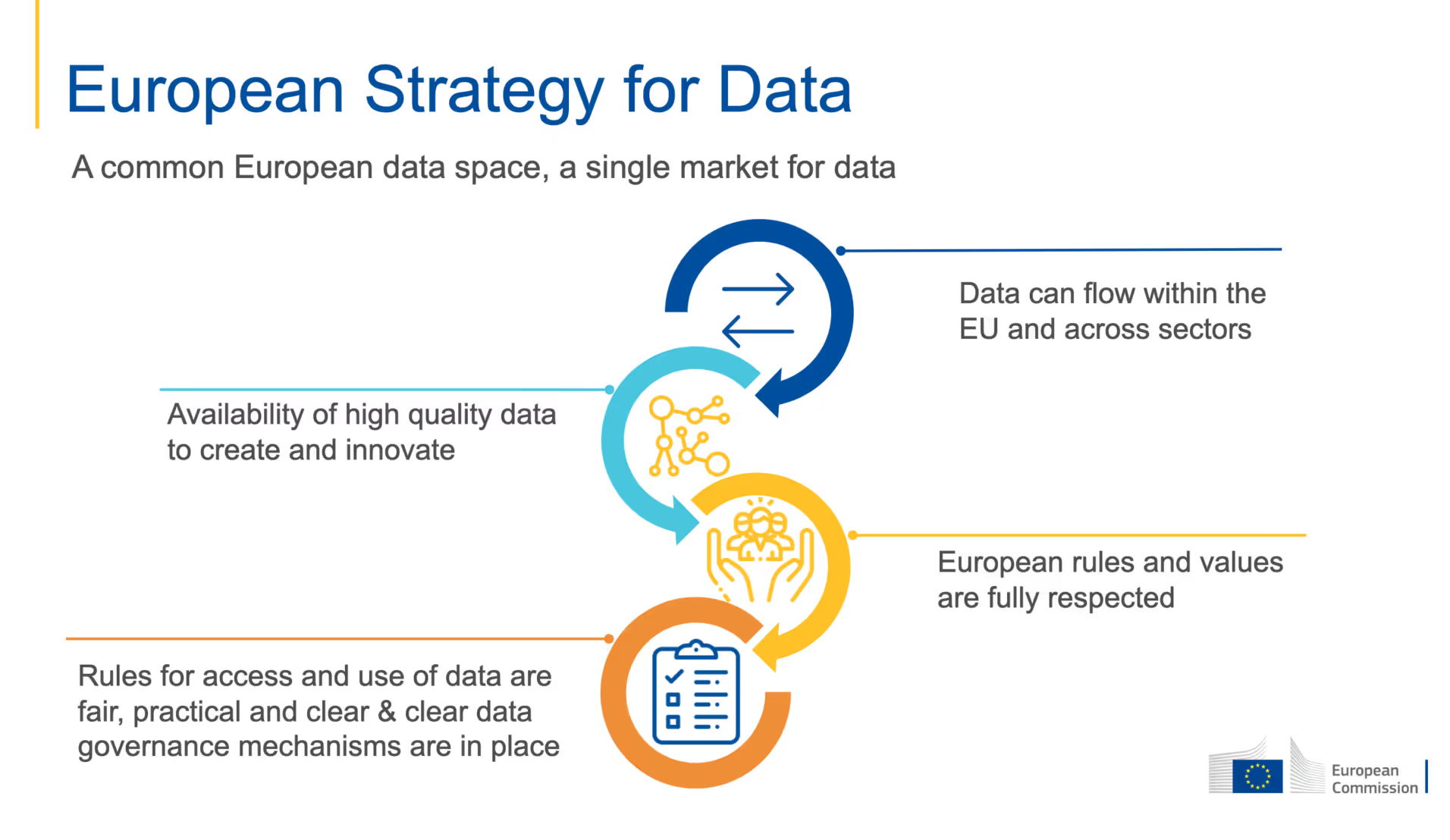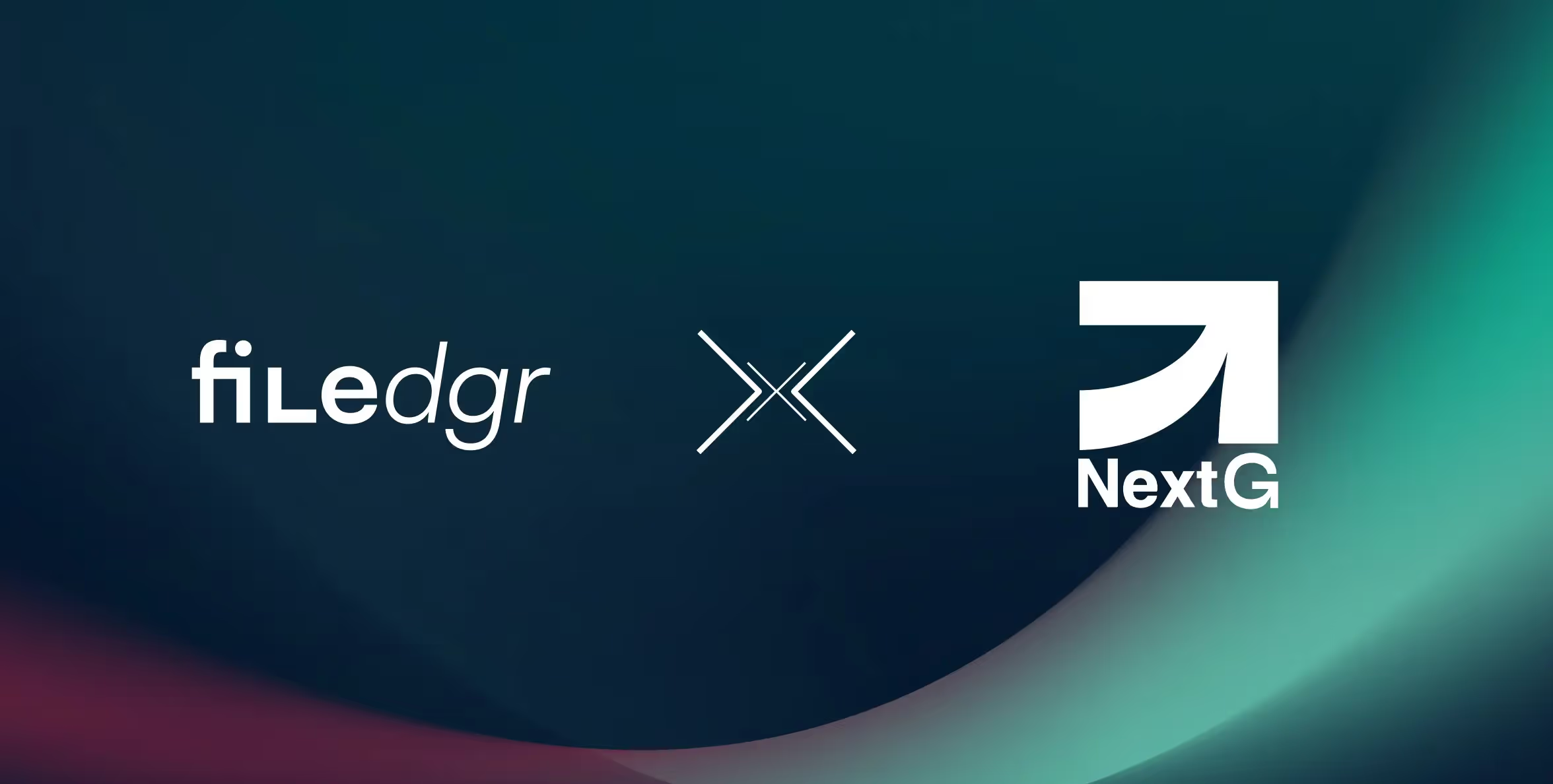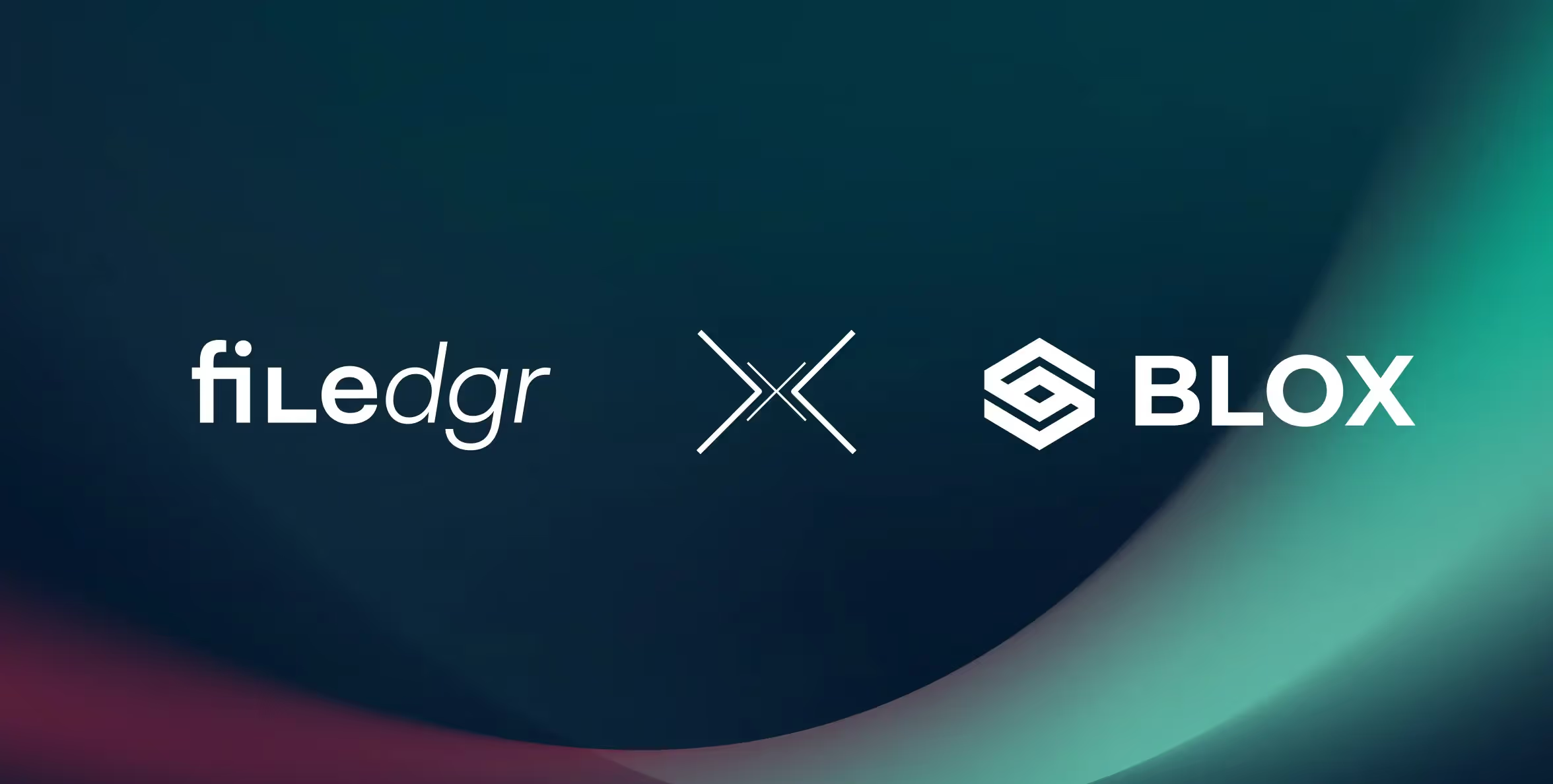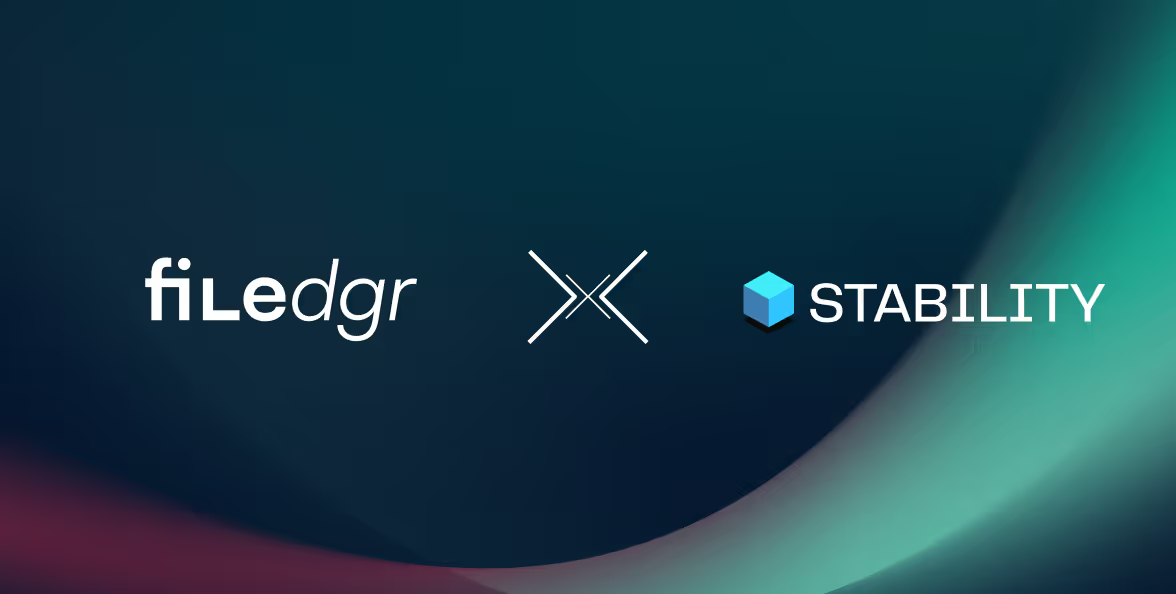Data Security and Transparency: 5 Strategies for ESG Compliance
Learn effective methods to safeguard sensitive data while maintaining transparency in ESG compliance. Enhance your organization’s security and trustworthiness.

The Intersection of ESG Compliance and Data Security
Environmental, Social, and Governance (ESG) compliance is no longer a “nice-to-have” for businesses- it is a legal and reputational imperative. Regulations such as the CSRD and ESPR have introduced binding requirements for transparent reporting, lifecycle traceability, and sustainability practices. While these measures enhance corporate accountability, they also introduce new challenges in managing and securing sensitive data.
Why does ESG compliance demand enhanced data security?
1. Increased Transparency Requirements
ESG reporting frameworks, such as the CSRD and GRI, emphasize transparency and require companies to provide detailed and verifiable information about their environmental impact, governance practices, and social contributions. This includes metrics like carbon emissions, supply chain operations, and diversity data. Without secure systems to manage this information, organizations risk breaches, falsification, or manipulation. A single compromised data point can undermine the credibility of an ESG report, leading to compliance failures and reputational damage. Furthermore, publicly reported ESG data can become a target for cybercriminals aiming to exploit sensitive business information.
2. Global Supply Chains and Cross-Jurisdictional Risks
Global operations mean that ESG data often traverses multiple countries, each with unique regulatory requirements for data handling and privacy. For example, a European company sourcing materials from Asia must ensure that data collection, processing, and transfer comply with both GDPR and local laws. These overlapping regulations create potential blind spots in data security. Moreover, data shared across third-party suppliers or logistics partners is exposed to vulnerabilities, such as insufficient encryption or outdated cybersecurity practices, increasing the likelihood of breaches and non-compliance.
3. Evolving Threat Landscape
The rising sophistication of cyberattacks places ESG-related data at heightened risk. Sensitive information, such as sustainability metrics and governance practices, is increasingly valuable to malicious actors, whether for financial gain, competitive advantage, or political motives. Threats like ransomware attacks, phishing campaigns, or insider leaks can disrupt the integrity of ESG data. For instance, a compromised digital product passport could result in misleading sustainability claims, exposing a company to greenwashing allegations and regulatory fines.
4. Reputational and Operational Risks
Failing to secure ESG data doesn’t just result in regulatory penalties—it also damages stakeholder trust. Investors, customers, and employees expect companies to manage ESG initiatives responsibly. A breach in data security could lead to accusations of mismanagement, harming investor confidence and consumer loyalty. Additionally, operational disruptions caused by data breaches—such as halted supply chains or inaccessible reporting systems—can lead to financial losses and delays in meeting ESG goals.
Without robust data security measures, companies risk failing to meet compliance obligations, leading to penalties, legal disputes, and reputational harm.
5. The Need for Proactive Measures
As the demands for ESG compliance and data transparency intensify, businesses must proactively safeguard their data. Relying on basic security measures is no longer sufficient. To meet compliance requirements and mitigate risks, companies need to implement advanced, tailored solutions that address the unique challenges of ESG-related data. Here’s how these measures can be expanded:
Advanced Encryption
Encryption ensures that sensitive ESG data is protected both during storage and transmission. By using advanced encryption algorithms, such as AES-256, businesses can safeguard data from unauthorized access or cyberattacks. This is particularly important for ESG reporting, where sensitive information about supply chain emissions, energy usage, and labor practices is often shared across global networks. Without robust encryption, intercepted data could be manipulated or exposed, leading to financial and reputational damage. End-to-end encryption provides an additional layer of security, ensuring data remains protected from the point of collection to its final destination.
Blockchain Technology
Blockchain technology offers an unparalleled level of transparency and security, making it ideal for ESG data management. By creating immutable records, blockchain ensures that ESG metrics, such as carbon offset data, supply chain activities, or sustainability certifications, cannot be tampered with. This technology also enables real-time updates, improving the accuracy and reliability of ESG reporting. For example, a blockchain-based digital product passport can provide stakeholders with verifiable data on a product’s lifecycle, helping businesses demonstrate compliance while building trust with consumers and regulators.
Regular Audits and Monitoring
Frequent audits and continuous monitoring are essential to maintaining data security in an evolving threat landscape. By conducting regular risk assessments, businesses can identify vulnerabilities in their systems and address them before they are exploited. This includes monitoring ESG data management systems for unauthorized access, irregularities, or breaches. Automated monitoring tools can provide real-time alerts, enabling companies to respond swiftly to potential threats. Audits also help ensure that ESG data remains accurate and compliant with regulatory standards, reducing the risk of penalties or reputational damage.
Third-Party Risk Management
Many companies rely on external vendors and partners for data collection, processing, or storage. However, third-party providers often present significant security risks, especially if their data practices are not aligned with ESG compliance requirements. A comprehensive third-party risk management strategy involves vetting vendors before engagement, requiring adherence to strict data security protocols, and conducting regular assessments of their systems. For instance, businesses can mandate that suppliers comply with GDPR or equivalent regulations to ensure the protection of sensitive data throughout the supply chain.
The Business Case for Proactive Measures
Implementing these proactive measures not only mitigates security risks but also positions businesses as leaders in transparency and accountability. Stakeholders, including investors, customers, and regulators, increasingly expect companies to demonstrate a commitment to responsible data management. Proactive security strategies enhance trust, reduce compliance costs, and ensure resilience against emerging threats, giving companies a competitive edge in the market.
By adopting advanced encryption, blockchain technology, regular audits, and stringent third-party risk management, businesses can secure their ESG data while meeting the complex demands of modern regulatory frameworks. These measures form the foundation of a robust ESG compliance strategy, enabling companies to navigate today’s data-driven landscape with confidence.
Key Challenges in Ensuring Data Security and Transparency
- Fragmented Regulatory Landscape Regulations like the CSRD, GDPR, and DORA introduce overlapping requirements, often leaving businesses uncertain about which rules apply to them. For instance, the CSRD demands extensive non-financial reporting, while GDPR mandates strict controls over personal data. Companies operating in multiple jurisdictions must navigate this regulatory maze to ensure full compliance.
- Data Silos and Inconsistencies Many organizations struggle with fragmented data systems, leading to inconsistencies in reporting and increased risk of breaches. ESG reporting amplifies this challenge, as companies must integrate data from disparate sources, including suppliers, manufacturing sites, and third-party partners.
- Cybersecurity Threats As businesses digitize operations, the attack surface for cyber threats expands. High-profile data breaches have demonstrated how vulnerabilities in one part of the supply chain can compromise an entire network. ESG compliance requires secure data transmission across stakeholders, further exposing potential weak points.
- Cost of Compliance Implementing comprehensive data security measures and ESG reporting systems requires significant investment. For small and medium-sized enterprises (SMEs), these costs can be prohibitive, creating additional pressure to prioritize resources effectively.
Strategies for Protecting Sensitive Information and Ensuring Transparency
The European strategy for data aims at creating a single market for data that will ensure Europe’s global competitiveness and data sovereignty. Common European data spaces will ensure that more data becomes available for use in the economy and society, while keeping companies and individuals who generate the data in control.

1. Adopt a Holistic Data Governance Framework
A well-designed data governance framework serves as the foundation for ensuring data consistency, accuracy, and security across all organizational operations. To be effective, this framework should:
- Define roles and responsibilities: Clearly assign accountability for data collection, storage, usage, and protection. Every team member must know their responsibilities to ensure compliance.
- Standardized procedures: Develop and enforce standard operating procedures for managing data to reduce inconsistencies and risks.
- Incorporate automated tools: Use automation to monitor compliance in real-time, enforce policies, and identify potential violations promptly. For example, automated dashboards can alert teams to unauthorized access attempts or non-compliant data handling practices.
2. Leverage Advanced Technology
Emerging technologies can significantly enhance data security and streamline compliance processes, especially for ESG-related data:
- Blockchain: By creating immutable records, blockchain ensures the integrity and traceability of ESG data, such as carbon footprints, supply chain records, and sustainability certifications. This enhances trust among stakeholders and simplifies regulatory audits.
- AI-Powered Analytics: Artificial intelligence can proactively detect vulnerabilities, assess risks, and even predict potential breaches before they occur. AI also aids in streamlining data reporting for compliance by identifying trends and anomalies in complex datasets.
- IoT Sensors: Real-time environmental monitoring through IoT devices enables accurate data collection for ESG reporting, such as emissions tracking or energy consumption metrics.
3. Implement Robust Cybersecurity Measures
To safeguard sensitive information, businesses must implement a comprehensive cybersecurity strategy that includes:
- Encrypt Sensitive Data: By encrypting data both in transit and at rest, businesses can ensure that even if data is intercepted or systems are compromised, the information remains indecipherable to unauthorized parties. Advanced encryption standards, such as AES-256, provide robust protection for ESG metrics, including emissions data and supply chain records.
- Use Multi-Factor Authentication (MFA): MFA significantly enhances access control by requiring users to verify their identity using multiple methods, such as passwords, biometric data, or one-time codes. This adds an extra layer of security, reducing the likelihood of breaches caused by stolen credentials or insider threats.
- Conduct Regular Vulnerability Assessments: Frequent assessments of systems and networks help businesses identify potential weaknesses before they can be exploited. Penetration testing simulates cyberattacks, providing actionable insights into vulnerabilities and ensuring systems remain secure against evolving threats. These assessments are particularly critical for systems handling ESG data, as such information is often shared with external stakeholders.
4. Enhance Supply Chain Collaboration
Effective collaboration within supply chains is essential for ensuring transparency and maintaining ESG compliance:
- Compliance standards: Share clear guidelines with suppliers and partners, setting expectations for data handling, reporting, and security.
- Digital Product Passports (DPPs): These tools provide traceable records of a product’s lifecycle, enabling companies to document sustainability efforts and meet regulatory requirements.
- Third-party audits: Regularly evaluate the practices of suppliers and partners to ensure they align with your organization’s security and ESG goals.
5. Prepare for Incident Response
Despite robust preventive measures, cyber incidents can still occur. A well-prepared incident response plan minimizes damage and ensures swift recovery:
- Clear communication protocols: Establish predefined processes for notifying stakeholders, including employees, partners, and regulators, in the event of an incident.
- Dedicated response teams: Assemble teams trained to manage investigations, mitigate risks, and restore operations efficiently.
- Continuous improvement: Analyze incidents post-resolution to identify vulnerabilities and implement measures to prevent future occurrences.
Protecting sensitive information and maintaining transparency is more than a compliance requirement—it’s a business imperative in today’s data-driven, regulation-intensive environment. By adopting a holistic data governance framework, leveraging advanced technologies, enhancing cybersecurity, fostering supply chain collaboration, and preparing for incidents, businesses can ensure they meet ESG compliance requirements while building trust with stakeholders.
Organizations that proactively implement these strategies not only safeguard their operations against risks but also position themselves as leaders in accountability and transparency. This commitment to data security and ESG compliance is not just about avoiding penalties; it’s about driving growth, improving stakeholder relationships, and achieving long-term success.
What can businesses expect?
1. Stronger Enforcement Mechanisms
With stricter penalties on the horizon for non-compliance, businesses must proactively address data security challenges. Regulatory frameworks like the European Data Governance Act are expected to introduce more stringent monitoring and enforcement processes, leaving no room for complacency. Businesses that fail to secure ESG-related data risk severe fines, reputational damage, and restricted market access.
2. Increased Stakeholder Expectations
Consumers and investors are increasingly aligning their choices with companies that demonstrate transparency and ethical practices. For ESG compliance, this means not just delivering accurate reports but also ensuring the data is verifiable and secure. Stakeholders are likely to demand clear evidence that businesses are protecting sensitive information against breaches and misuse.
3. Greater Integration of ESG and Cybersecurity Strategies with Blockchain-Based Solutions
The convergence of ESG and cybersecurity will redefine how companies manage data risks and operational resilience. Blockchain technology, in particular, offers groundbreaking advantages for securing ESG-related data:
- Immutability and Traceability: Blockchain creates tamper-proof records of ESG metrics, such as carbon offsets, energy usage, and supply chain transparency. Each data point is timestamped and immutable, ensuring regulators and stakeholders can trust the information. This level of security is especially critical for avoiding greenwashing claims.
- Decentralized Data Management: Blockchain’s decentralized architecture removes reliance on a single data storage point, reducing the risk of breaches. Data is distributed across nodes, making it nearly impossible for a single attack to compromise the entire system.
- Smart Contracts for Automated Compliance: By embedding compliance requirements into smart contracts, businesses can automate adherence to regulations. For example, a blockchain-based system can automatically verify supplier ESG data against predefined standards, eliminating manual processes and reducing human error.
- Real-Time Auditing and Monitoring: Blockchain enables continuous auditing of ESG metrics, providing real-time updates to both regulators and internal stakeholders. This capability not only enhances operational transparency but also ensures swift detection and resolution of discrepancies.
By integrating blockchain into their ESG and cybersecurity strategies, businesses can build resilience against data-related threats while ensuring compliance with emerging regulations. This approach not only protects sensitive information but also reinforces stakeholder trust, offering a competitive edge in an increasingly scrutinized market.
Conclusion
It is clear that the intersection of data security and ESG compliance has global implications for businesses, particularly as regulatory frameworks continue to evolve. To navigate this complex landscape effectively, companies must develop a clear understanding of the laws and standards that apply to them. By doing so, they can minimize risks, avoid unintended consequences such as fines or reputational damage, and maintain seamless operations.
The growing emphasis on sustainability and due diligence further underscores the need for businesses to stay ahead of both binding regulations and emerging guidelines that may become mandatory in the future. This proactive approach is not only essential for compliance but also provides a competitive advantage in an increasingly transparent market.
Establishing robust systems for data governance and supply chain traceability is particularly critical. By ensuring transparency and accountability at every stage of their operations, companies can align with regulatory expectations and meet consumer demands for responsible practices. Ultimately, a deep understanding of how different legal frameworks interact and impact business operations is the foundation for long-term resilience and success.
Contact us today to learn more about how our solutions can support your business in 2025 and beyond.
Get started today
Stay ahead of audits and evolving regulations with verified integrity.
Get in touch to learn more.












